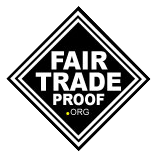
Throughout the 1990s, the Catholic Diocese of Quetzaltenango maintained an active program offering technical and organizational support to small-scale coffee farmers in western Guatemala as a means of poverty alleviation and economic development. However, despite this support, farmers still lacked the means to bring their product to market, and had to resort to selling to middlemen, “coyotes”, who cut them out of the greater market. It was with the goal of gaining direct access to international buyers that the Asociacion de Pequeños Productores de Cafe Manos Campesinas was conceived in 1996. Organized as a secondary level organization, the cooperative developed direct export channels for a founding group of 6 farmer associations. Today, Manos Campesinas is comprised of 13 cooperative groups across the departments of San Marcos, Quetzaltenango, Solola and Chimaltenango, and it represents over 1,200 farming families.
Manos Campesinas strives to maximize the benefit of its activities by offering the highest return and best prices to member farmers, investing most of the profits in technical support. The association works with a small, core administrative staff as well as strong technical department working closely with farmers on the field.
Manos Campesinas is fiercely independent and proud of its self-sustaining and finanially responsible business model. They actively seek to avoid the need for external support from international governments and NGOs, which can often simply lead to more north-south dependency. The association’s seven strategic values include a commitment to social responsibility, quality, sustainability, gender equality, and environmental protection. They aim to be the first choice for customers around the world, not only for the quality of its coffee, but also for quality of service and the positive impact it has in it's members' communities.
The majority of the coffee grown by Manos Campesinas’ members is high-altitude SHB (Strictly Hard Bean), with a diversity of coffee profiles, from the rich chocolatey coffees of San Marcos to the tart berry-like coffees of Solola and Lake Atitlan.
Cooperative Coffees sources coffee largely from the region of San Marcos, from organizations nestled in the volcanic soils between the Tajomulco and Tacana volcanos. To this day, we continue to work with APECAFORM (the Maya-Mam Association of Smallholder Organic Coffee Farmers), the first organization to export fair trade organic coffee through Manos Campesinas.
Asociacion de Pequeños Productores de Cafe Manos Campesinas
- FLO ID#: 711
- Organic Cert
Profile
- Total Bags Purchased: 21731
- Partner Since: 2000
- Founded: 1997
- Total Members: 1282
- Total Hectares: 1132.00
- Organic Members: 1282
- Female Members: 380
- Avg Farm Size: 0.88 ha
- Organic Hectares: 1132.00
- Full time staff: 15
- Fulltime Agronomists: 10
- Harvest: Dec-Apr
- Elevation: 800-2200 m
Varietals Grown:
- 28% Catimor
- 23% Bourbon
- 20% Caturra
- 11% Costa Rica 95
- 7% Pache
- 7% Catuai
- 3% Anacaf�14
- 1% Other
Social Premium Investment: 2024 Crop Year
Fair Trade Certification guarantees 20 cents/lb of the price paid a producer organization is set aside as a social premium. How this money is invested is a decision taken collectively by the general assembly of members at the end of each harvest. Below is a break down of how producers in this organization chose to spend their fair trade premium.
| 58% |
Additional Income
Additional payment to producers in order to provide a competitive price that rewards organic practices
|
| 22% |
Operations
Salaries of primary level organization staff, office supplies, telephone, internet, electricity and other needs from primary associations.
|
| 16% |
Community Development
General assembly expenses, travel and board expenses, legal costs
|
| 5% |
Improve Yields
Support for local promotors, organic fertilizer and local organic promotion groups
|
